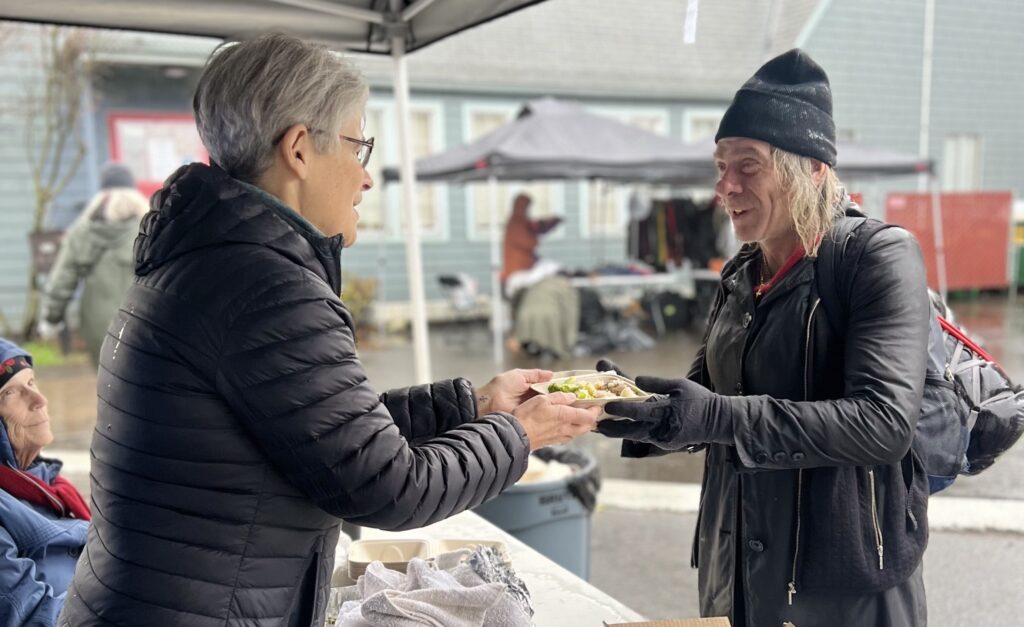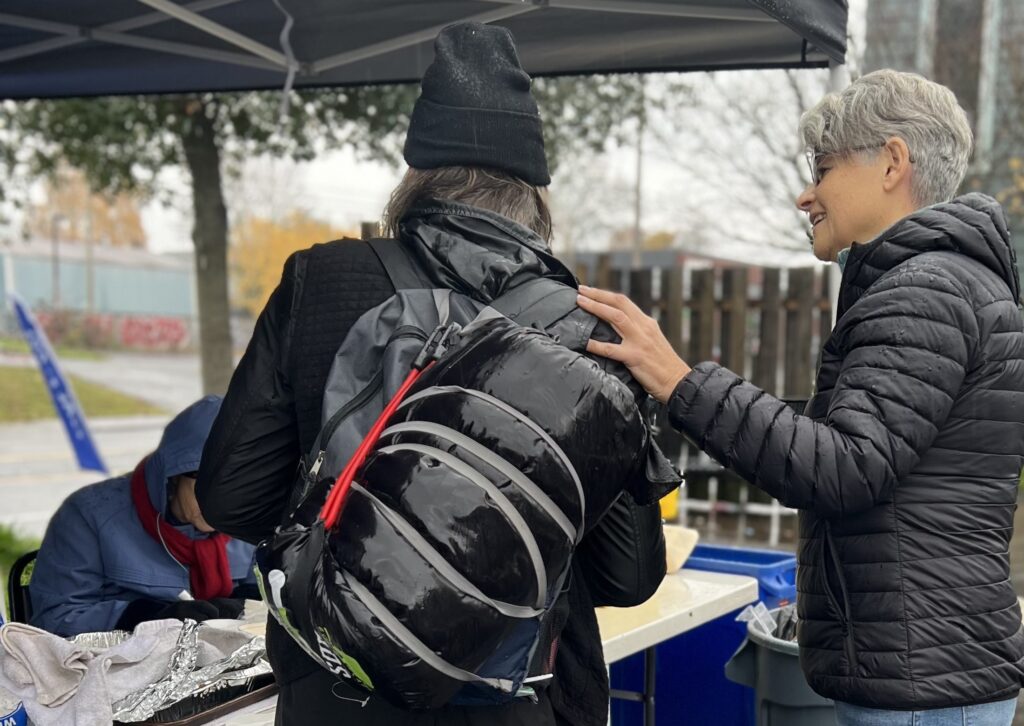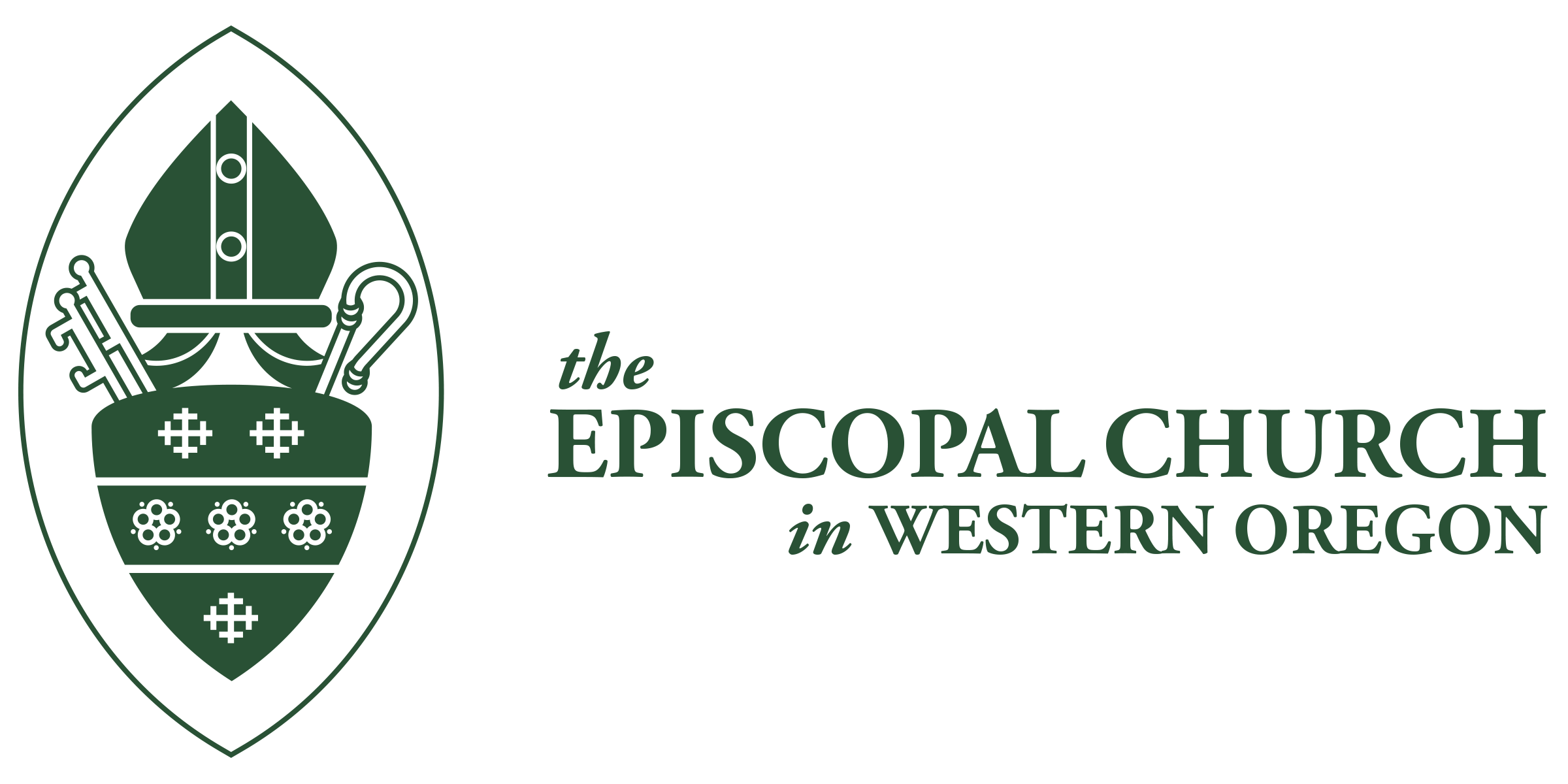The Executive Council of The Episcopal Church has granted a one-year $25,000 seed grant for the launch of a new Episcopal community in our diocese.
Named the “Mission of Saint Mary the Prophet,” this initiative will serve the community of East Portland, focusing primarily on those who are unhoused. The idea for this ministry came from conversations between Bishop Akiyama and the Rev. Sara Fischer as they discerned what a model of church that is outside a traditional parish or mission status would look like — particularly one with an outward-facing ministry focused on those who cannot financially support a building.
From this conversation, the Bishop and the Rev. Fischer turned to Diocesan Canon 4.2: City Mission Societies. “This Canon provides a unique opportunity for the diocese to explore non-traditional forms of ministry,” said Bishop Akiyama. Canon 4.2 allows, with the approval of the bishop, for a faith community, referred to as a “city mission society,” to be organized for “the purpose of ministering to persons not reached by parishes or missions.” This community would operate under the bishop’s purview, with an appointed clergyperson spearheading the on-the-ground work.

Bishop Akiyama and the Rev. Fischer agreed on the “Mission of Saint Mary the Prophet” as the working name for this city mission, focusing on The Magnificat (Luke 1:46-55)as the building-less ministry’s cornerstone. “The Bishop and I are both passionate about the role of the church living out Mary’s proclamation,” said the Rev. Fischer. “The Magnificat shows her prophetic role in addition to other roles in our faith.”
“This mission seeks to embody Mary’s prophetic vision by responding to and embracing communities that have historically been ignored,” said Bishop Akiyama. “As a new faith community, the Mission of Saint Mary the Prophet will begin as a gathering of an intentional community rather than as outreach from an established congregation. In this way, those who are being served will also be those who serve and seek to interpret God’s grace and mercy in this specific context.”
There are two objectives the Mission of Saint Mary the Prophet will focus on in its first year. First, having intentional one-on-one conversations with the unhoused community about faith and their faith experience. Second, gathering people to co-create a grassroots trauma-informed worship. “I have always been fascinated with street church, and am interested to see what that looks like in Portland,” said the Rev. Fischer.
Half of the seed grant will cover the Rev. Fischer’s stipend, while the other half will fund the ministry’s professional and hospitality services. The Rev. Fischer has rented a small office in the Montavilla neighborhood as her “homebase,” but plans to mainly operate this ministry from her car and by foot walking the streets of East Portland.

The Rev. Fischer hopes that by the end of the one-year grant, a new faith community of unhoused people will begin to emerge, one that participants are excited for and feel they have ownership of.
“The wonderful thing about a seed grant from [The Episcopal Church] is that they expect these projects to evolve,” said the Rev. Fischer. “Projects like this are very fluid.”
Freed from the upkeep connected to maintaining a building, the ministry of the Mission of Saint Mary the Prophet can allocate its resources towards addressing the needs of its community. “New faith communities require relationships built on common concerns and desires rather than the building of a new structure,” says Bishop Akiyama. “The hunger for belonging, healing, and authentic expressions of the Holy is palpable in our diocese. I am excited to see how this ministry develops.”
